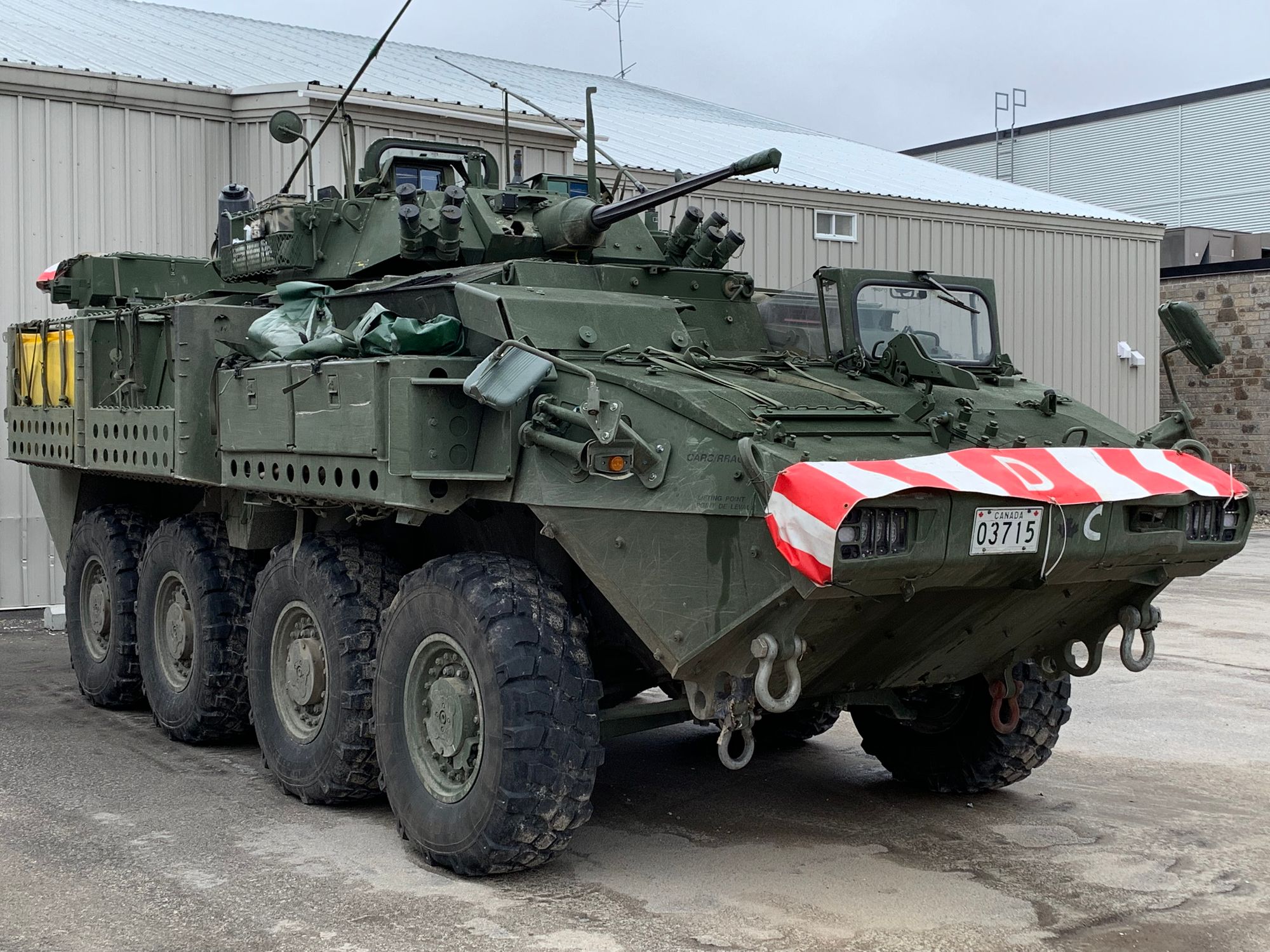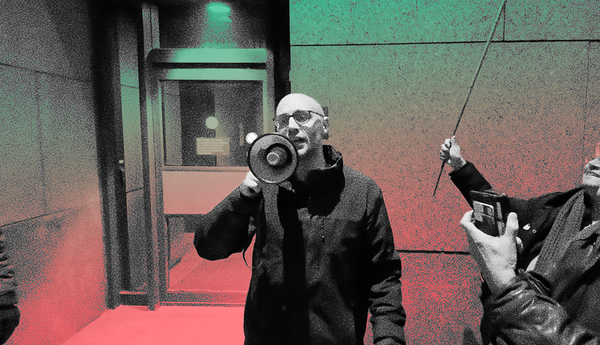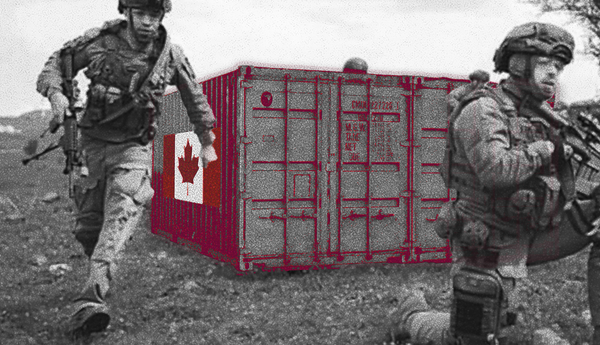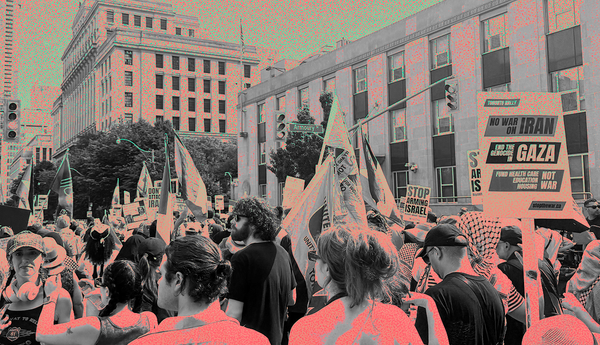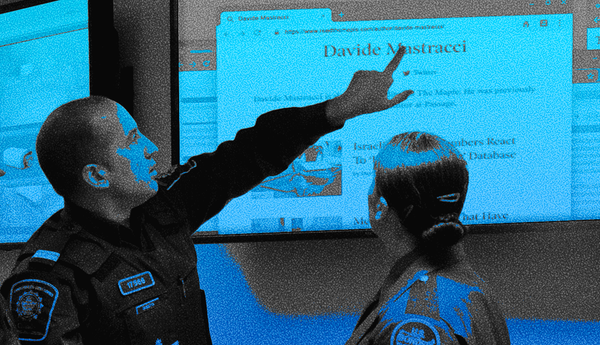It’s business as usual for Canadian military sales to Saudi Arabia, despite the theocratic kingdom’s horrific human rights record and an apparent diplomatic spat with Canada.
The most recent data from Statistics Canada shows that in August 2022 alone, Canadian firms sold $132,445,056 worth of tanks and other armoured fighting vehicles to Saudi Arabia.
While the kingdom ranks as Canada’s second-largest importer of all military equipment after the United States, it is by far the largest buyer of tanks and armoured vehicles.
As researcher and York University doctoral student Anthony Fenton observed, Canada has supplied $5.9 billion worth of armoured vehicles to Saudi Arabia since August 2018, when the kingdom announced it would suspend “all new business and financial transactions with Canada [emphasis ours]" in response to the Canadian government criticizing the arrest of women’s rights activist, Samar Badawi.
For anyone keeping track, that's $5.9 billion worth of armored vehicles supplied to Saudi Arabia just since the still technically ongoing diplomatic rift of August 2018. https://t.co/FW0ZQpejtD
— Anthony Fenton (@anthonyfenton) October 5, 2022
This dispute culminated in an official Saudi government account tweeting an image of a plane flying into Toronto’s skyline, captioned with the Arabic saying, “He who interferes with what doesn’t concern him finds what doesn’t please him.”
Despite this thinly veiled threat of a 9/11-style attack, Canadian military sales to Saudi Arabia have continued apace. Canada’s signing of the international Arms Trade Treaty, which prohibits exporting weapons used to commit or facilitate human rights abuses, has also failed to slow such exports.
Since 2015, Saudi Arabia and the United Arab Emirates (U.A.E.) have led a bombing campaign against Houthi rebels in Yemen, fuelling a humanitarian crisis that as of the end of 2021 had killed 377,000 people, the vast majority of whom were children under the age of five. A six-month truce expired earlier this month with no extension in sight, resulting in an unknown number of civilian casualties in recent days.
Despite years of bloodshed, Canadian military exports to Saudi Arabia increased to more than $1.7 billion in 2021 from $1.3 billion the year prior.
In an emailed statement to The Maple, a Global Affairs Canada spokesperson said that the Canadian government "continues to monitor developments in the Kingdom of Saudi Arabia and the surrounding region, and will not hesitate to take appropriate action should credible evidence come to light regarding the misuse of Canadian controlled goods or technology."
"Canada strongly supports the UN-led peace process and urges the parties to negotiate in good faith with a view of renewing the UN-backed truce and to re-engage in comprehensive peace talks," the spokesperson added.
The political economy of military exports to Saudi Arabia
Fenton told The Maple it is important to note that Canadian military exports to Saudi Arabia consist mainly of General Dynamics Land Systems' (GDLS) light-armoured vehicles (LAVs), manufactured in London, Ont. These are sold as part of a 2014 deal originally approved by the government of Stephen Harper, but given the final green light by Prime Minister Justin Trudeau in 2015.
The $15-billion, 10-year deal is “spread out over [Canadian companies’] ability to produce … because obviously you can't roll these things out overnight,” Fenton said.
The kingdom’s brutal murder of Saudi journalist Jamal Khashoggi, which occurred two months after the Saudi-Canadian diplomatic spat, spurred the Trudeau government to review its arms exports to Saudi Arabia.
In 2019, the Global Affairs Canada (GAC) review found “no credible evidence linking Canadian exports of military equipment or other controlled items to any human rights or humanitarian law violations committed by the Saudi government." However, a month before the publication of that report, Houthi rebels released images appearing to show at least five Canadian-made LAVs that they had damaged or destroyed.
Fenton said these were older model LAVs than the ones sold through the 2014 agreement, which are still being shipped to Saudi Arabia. However, an “undisclosed portion” of that agreement included the repair and upgrade of the older models.
The GAC report, which Fenton emphasized was essentially a whitewash, found $2 billion in potential transactions between Saudi Arabia and 20 companies were frozen as a result of formal relations being cut off. We don’t know what products or services the $2 billion covered, however.
Behind the diplomatic feud, the Canadian and Saudi economies remain intertwined. Cirque du Soleil’s OVO Riyadh show opened on Oct. 12., and is scheduled to run until Dec. 3.
The 2022 World Defense Show, hosted in March by Saudi Arabia, had eight Canadian exhibitors, including GDLS. Christyn Cianfarani, the CEO of Canada’s defence lobby, the Canadian Association of Defence and Security Industries (CADSI), spoke on a panel titled “Advancing Gender Equality in Defence” on the show’s third day.
The CEO of Canada's arms lobby organization, CADSI, is attending the inaugural Saudi arms bazaar #WDS2022, speaking today on a "advancing gender equality in defense" panel pic.twitter.com/DWdyk3fOAq
— Anthony Fenton (@anthonyfenton) March 8, 2022
Recent talk of the U.S. reevaluating its ties with Saudi Arabia due to the kingdom spearheading OPEC+ plans to cut oil production — after the U.S. requested it increase production — is similarly superficial, Fenton suspects, given how intertwined the Saudi economy is with that of the U.S.
Why does Canada continue selling weapons to Saudi Arabia?
Rohinton Medhora, a distinguished fellow at the Centre for International Governance Innovation in Waterloo, Ont., told The Maple that Saudi Arabia is interested in Canadian military hardware, since this country's military specifications are so close to those of the U.S., which is the kingdom's main military supplier.
While Canada does have an export control regime in place, with recipients having to sign end-use certificates, it’s a much more lenient system than exists in many European countries, such as Norway and Denmark, which have cut off Saudi arms sales.
On the Canadian side of the equation, the arms industry creates jobs. In 2020, then-foreign affairs minister François-Philippe Champagne maintained in the face of criticism that cancelling the LAV deal would “put the jobs of thousands of Canadians at risk, not only in southwestern Ontario but also across the entire defence industry supply chain, which includes hundreds of small and medium enterprises."
But Medhora said the government has always been quiet on the specifics of these economic consequences.
“The government hasn't really provided a detailed response, always on the logic that the commercial contract has secrecy clauses that prevent it from saying more than it's saying,” he added.
Pushback against continued exports
NDP foreign affairs critic Heather McPherson told The Maple the Canadian government’s continued military exports to Saudi Arabia are “not living up to the spirit or the letter” of the Arms Trade Treaty and belies the Trudeau government’s rhetoric “about being a human rights champion.”
The Saudi-U.A.E. coalition’s attacks in Yemen continue to "operate with political and military support of states including the United States, the United Kingdom and Canada,” she added.
A United Nations panel has twice criticized Canada, alongside the U.K., U.S., France and Iran, for fuelling the war in Yemen with their military sales to parties to the conflict “with little regard for the immense suffering caused to the people of Yemen.”
In December 2021, a coalition of Canadian civil society organizations, including the Canadian Labour Congress (CLC), wrote an open letter to Trudeau calling the Saudi weapon sales an affront to “Canada’s discourse on human rights.” This was the coalition’s fifth open letter to the government on the topic, having written two in 2019 and two in 2020.
The coalition pointed to the contradiction between arming a serial human rights abuser implicated in a humanitarian catastrophe while signing international arms control agreements and boasting of a “feminist foreign policy.”
“The government of Canada has spoken openly about how women and other vulnerable or minority groups are systematically oppressed in Saudi Arabia and are disproportionately impacted by the conflict in Yemen,” the letter noted. “Direct support of militarism and oppression, through the provision of arms, is the exact opposite of a feminist approach to foreign policy.”
Since ending the sales would put people’s jobs at risk in Canada, the letter called on Trudeau to “work with trade unions representing workers in the arms industry to develop a plan that secures the livelihoods of those who would be impacted.”
McPherson expressed support for this approach. “It's time for Canada to develop a robust, thoughtful economic conversion strategy that will decrease our reliance on arms exports and build a manufacturing sector that benefits Canadians - and doesn't contribute to violations of human rights abroad,” she said.
Medhora explained this conversation “should really prompt some thinking about economic transitions” which would also inform how we transition away from fossil fuels in the face of the climate crisis.
“If the question is that jobs are going to be lost, maybe we should be thinking about transitioning these workers to other more socially productive uses,” he said.
“Whether it's towards green energy and clean energy, or whether it's away from the arms trade, one can't be callous when jobs are involved. But nor can we use that argument to let the status quo simply remain.”
Editor's note, Oct. 13, 2022: This story has been updated to include a statement from Global Affairs Canada which was sent after this story was published.
Jeremy Appel is a journalist based in Calgary, and his work has appeared in The Sprawl, CBC Calgary, Jacobin, Passage and the Forward. He also co-hosts the Forgotten Corner and Big Shiny Takes podcasts.
Go deeper
Here are a few stories from our archive that expand on today's story
Stephen Harper Praises Saudi Regime, Calls for Closer Western Ties
Former prime minister Stephen Harper made an appearance in the op-ed pages of the National Post to warn against negotiating with Iran because of its “theocratic ideology,” before advocating for closer ties with Saudi Arabia, a theocratic monarchy and notorious human rights abuser.
Ministers Promote Canadian War Industry at International Show
Attendees at the 2022 Farnborough International Airshow (FIA), including two Canadian trade ministers, were sheltered from the United Kingdom's sweltering heat wave in July as they mingled with arms dealers and buyers from around the world.
Top Maple story this week
More NDP Members Decry Party’s ‘McCarthy-esque’ Vetting Tactics

More new B.C. NDP members — including a former paid NDP campaigner — are expressing concerns about the party’s “McCarthy-esque” vetting tactics in the leadership race.
Catch up on our latest stories
- B.C. NDP Attempting to Suppress New Members' Leadership Votes, Supporter Alleges.
- Arms Dealers Lining Up to Replenish Canadian Military Supplies.
- Advocating for Sex Workers.


